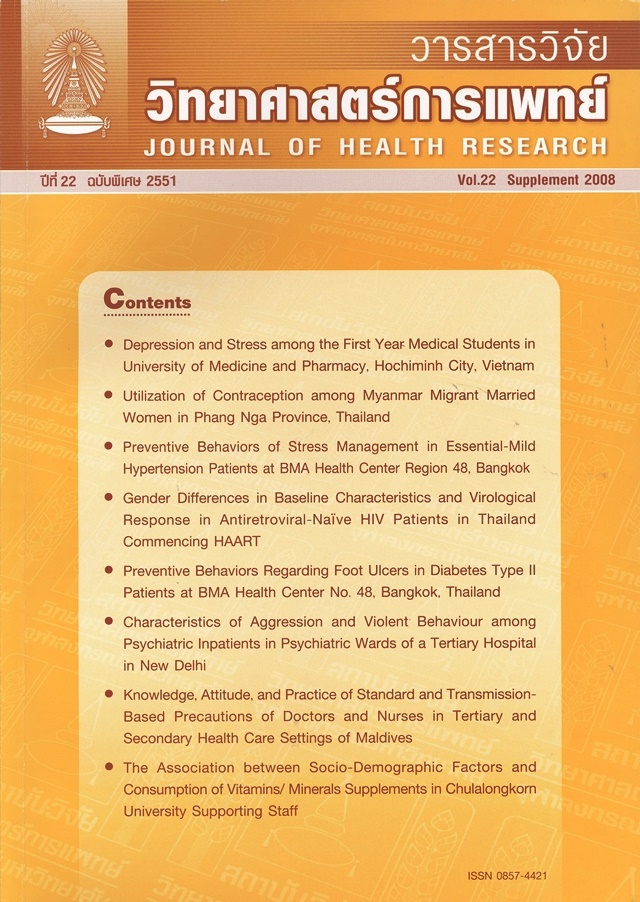Health Related Quality of Life of Myanmar Migrants in Takuapa and Kuraburi Districts, Phang-Nga Province, Thailand
Keywords:
Quality of life, Myanmar migrant workers, Short Form Health Survey 12 item, self-perceived health statusAbstract
Health related quality of life of Myanmar migrant workers in two districts of Phang-Nga Province, Takuapa and Kuraburi, was explored by Short Form Health Survey 12 item (SF 12) for their health perception on their own health status. The primary objective of this study was to assess health related quality of life of migrants’ between 15 and 49 years old and then to explore the association between factors influencing health related quality of life. Phang-Nga province was selected purposively and the two districts were selected by cluster sampling method. Frequency, mean, percentage and standard deviation were utilized for descriptive analysis, whereas for inferential analysis, Mann-Whitney and Kruskal-Wallis tests were applied for test of association between factors influencing health related quality of life. The results showed that one-third of migrants’ self-perceived health status was good but nearly half of the respondents revealed that their quality of life was fair and poor. Female, the unregistered migrants, subjects who feared finance and police’s arrest were discovered to have higher mean rank of quality of life score by carrying out Mann-Whitney test (p=0.01, p=0.01, p=0.03 and p=0.03 respectively). When Kruskal-Wallis test was applying for test of association, it was found that the married migrants, subjects who finished primary educational, migrants who had more than 3 children staying with them, migrants who held pessimistic view on their personal security and subjects who had bad relationship with employer/supervisor at workplace had higher mean rank of quality of life score (p=0.01). Further studies need to be carried out for qualitative information because the concept of quality of life is abstract and has different meanings in different socio-cultural contexts.







